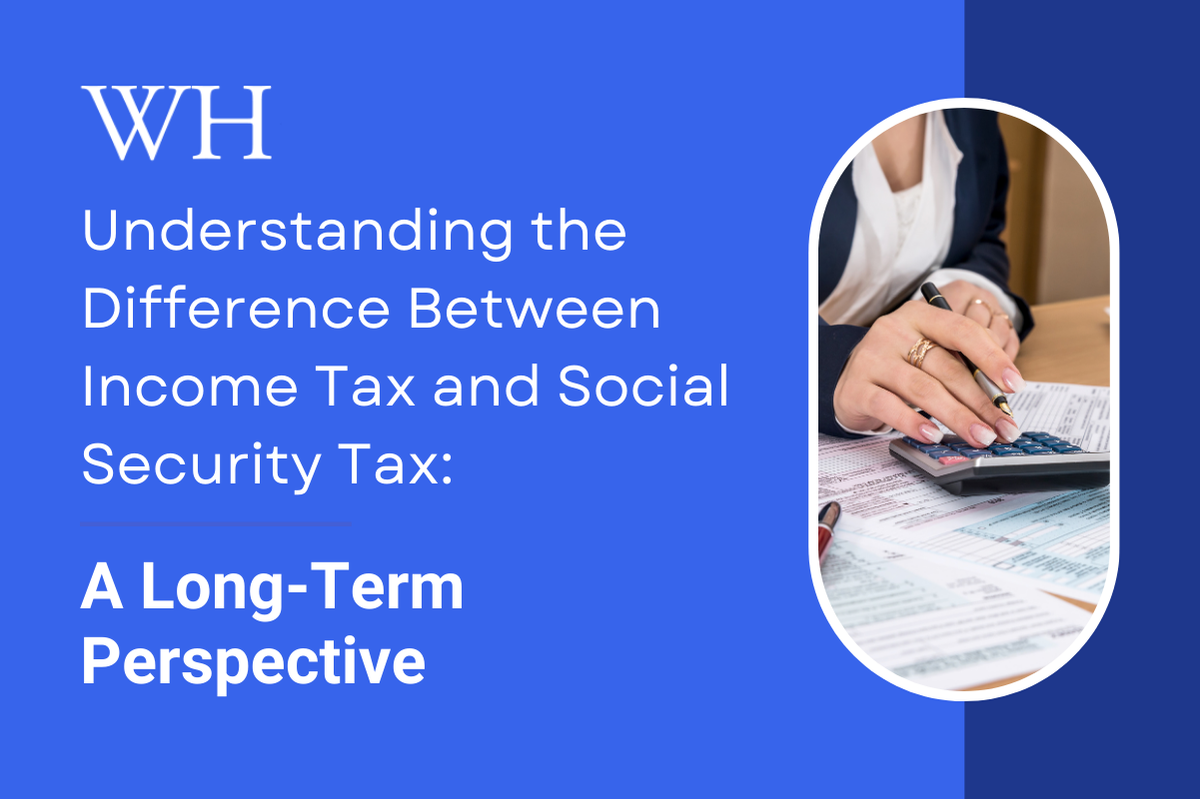
At Waters Hardy, we believe that understanding the ins and outs of your taxes can empower you to make informed financial decisions. Two of the most significant taxes you’ll encounter in your financial journey are income tax and Social Security tax. While both impact your paycheck, they have different purposes and distinct long-term implications. Let’s break down these differences to help you better navigate your financial future.
What Is Income Tax?
Income tax is imposed by the federal and, in many cases, state governments on the money you earn. This includes wages, salaries, dividends, and interest. The more you earn, the higher the percentage of your income you pay in taxes, known as a progressive tax system.
Income tax primarily funds various government services and programs, including education, infrastructure, and public safety. The rates and regulations can change from year to year, which can make it challenging to predict how much you’ll owe.
What Is Social Security Tax?
On the other hand, Social Security taxes are specifically designed to fund the Social Security program, which provides retirement, disability, and survivor benefits. This tax is collected through the Federal Insurance Contributions Act (FICA), which takes a set percentage of earnings. For 2024, the Social Security tax rate is 6.2% for employees and employers, up to a wage cap of $168,600, which adjusts annually.
Unlike income tax, which is subject to various deductions and credits, the Social Security tax is straightforward: a flat rate applied to your earnings, ensuring everyone contributes to the social safety net.
Key Differences Between Income Tax and Social Security Tax
- Purpose: Income tax funds a broad range of government services, while Social Security tax is dedicated to supporting retirees and individuals with disabilities.
- Rate Structure: Income tax is progressive, meaning higher earners pay a larger percentage, whereas Social Security tax is a flat rate up to a certain income cap.
- Long-Term Impact: Income tax affects your disposable income but doesn’t directly contribute to future benefits. Social Security tax, on the other hand, impacts your eligibility for benefits when you retire or if you become disabled.
What This Means for You in the Long Run
Understanding the differences between these taxes can help you make informed decisions about your financial planning. For instance, while a higher income might mean you owe more in income taxes, it can also enhance your Social Security benefits down the line. This is particularly important to consider as you plan for retirement.
Here are a few key points to keep in mind:
- Retirement Planning: Your Social Security benefits are based on your lifetime earnings. The more you pay into the system, the higher your potential benefits will be when you retire. This can significantly impact your retirement lifestyle.
- Tax Strategy: Knowing how much you’re paying in both types of taxes can help you develop a tax strategy that maximizes your savings. For example, you might consider tax-deferred accounts like 401(k)s or IRAs to lower your taxable income now and save for the future.
- Financial Security: Social Security serves as a critical safety net. The earlier you start paying into the system, the more robust your benefits will be when needed.
Conclusion
At Waters Hardy, we’re committed to helping you understand these essential aspects of your finances. By grasping the differences between income tax and Social Security tax, you can make more strategic decisions that will benefit you in the long run. Feel free to reach out if you have questions about your tax situation or how to optimize your tax strategy. We’re here to provide personalized, quality service that meets your unique needs.
Investing time in understanding your taxes today can lead to greater financial security tomorrow. Let us help you navigate the complexities of tax planning and ensure you’re on the path to a bright financial future.
